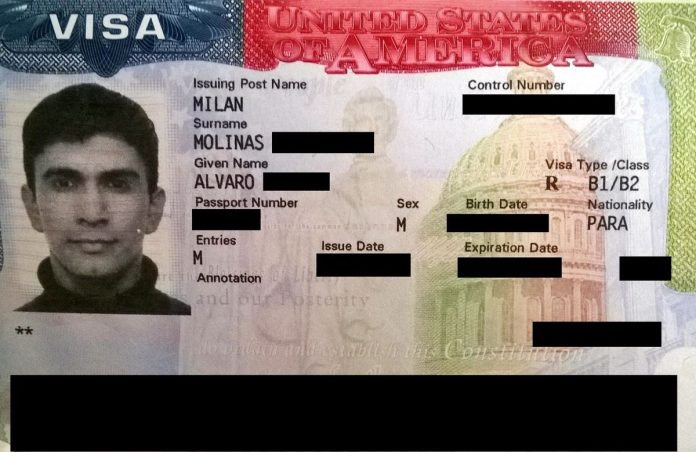In the realm of international business, India stands out as a pivotal destination for trade, investment, and collaboration. For entrepreneurs, executives, and professionals eyeing opportunities in the Indian market, obtaining the requisite visa is paramount. Understanding the nuances of Indian visa regulations for business travelers can streamline the entry process and facilitate productive engagements. From visa categories to application procedures, this comprehensive guide elucidates the essentials for seamless business travel to India. Indian Visa for BUSINESS TRAVELERS
Types of Business Visas
Indian business visas cater to various needs and durations, accommodating the diverse requirements of business travelers. The most common types include:
- Business Visa (B-1): Ideal for short-term visits for meetings, conferences, or negotiations, the B-1 visa permits stays of up to 180 days.
- Employment Visa (E): Tailored for individuals employed by an Indian entity, this visa facilitates long-term stays and may require sponsorship from the employer.
- Project Visa (P): Suited for foreign nationals engaged in specific projects in India, this visa permits entry for the project’s duration, often requiring documentation from the project’s host organization.
- Intern Visa (I): Designed for interns serving Indian companies, this visa enables practical training opportunities for foreign professionals.
- Conference Visa (C): Geared towards attendees of conferences, seminars, or workshops in India, this visa grants entry for the event’s duration.
Application Process
Navigating the Indian visa application process demands attention to detail and adherence to prescribed protocols. Key steps include:
- Online Application: Initiate the process by filling out the online visa application form on the official website of the Indian Visa Online portal.
- Document Submission: Prepare and upload the requisite documents, including passport copies, photographs, proof of business association, and invitation letters from Indian counterparts.
- Biometric Data: Depending on the applicant’s nationality, biometric data may be required at designated visa application centers.
- Fee Payment: Pay the applicable visa fee online through secure payment gateways, ensuring compliance with the fee structure outlined by Indian authorities.
- Appointment Scheduling: Schedule an appointment at the nearest Indian consulate or embassy for visa submission and processing.
- Interview (if necessary): Attend an interview, if mandated, to provide further clarification on the purpose of the visit and other relevant details.
- Visa Approval: Upon successful processing, receive the approved visa either electronically or affixed in the passport, as per the chosen delivery option.
Documentation Requirements
Accurate and comprehensive documentation is pivotal for a smooth visa application process. Essential documents include: Indian Visa HOW TO READ DATES
- Passport: Validity exceeding six months beyond the intended duration of stay in India.
- Photographs: Recent passport-sized photographs adhering to specified dimensions and background color.
- Invitation Letter: Official invitation letters from Indian business counterparts or host organizations, detailing the purpose and duration of the visit.
- Proof of Business Association: Documents substantiating the business relationship between the applicant and Indian entities, such as letters of intent, contracts, or agreements.
- Financial Proof: Evidence of sufficient funds to cover expenses during the stay in India, typically through bank statements or sponsorship letters.
- Travel Itinerary: Details of travel plans, including flight reservations and accommodation arrangements.
Visa Validity and Extensions
Indian business visas typically entail specific validity periods, ranging from a few months to several years, depending on the visa category and applicant’s nationality. Extensions may be sought through the Foreigners Regional Registration Office (FRRO) in India, subject to fulfillment of prescribed conditions and payment of requisite fees.
Compliance and Regulations
Adherence to Indian visa regulations is imperative to avoid complications or legal ramifications. Business travelers must comply with the following:
- Purpose Limitation: Ensure activities in India align with the stated purpose of the visa, refraining from unauthorized employment or activities prohibited under visa regulations.
- Registration Requirements: Adhere to mandatory registration requirements for stays exceeding 180 days, as per Indian immigration laws.
- Exit Formalities: Depart India before the visa’s expiration to prevent overstay penalties or future visa complications.
- Notification Obligations: Fulfill reporting obligations to the FRRO regarding changes in residential address, employment status, or other pertinent details during the stay in India.
Conclusion
Navigating the intricacies of Indian visa requirements for business travelers necessitates meticulous planning, attention to detail, and compliance with prescribed regulations. By understanding the nuances of visa categories, application procedures, and compliance obligations, business professionals can embark on fruitful engagements in the dynamic landscape of Indian commerce. With proper preparation and adherence to regulatory frameworks, business travel to India can be both productive and rewarding.

